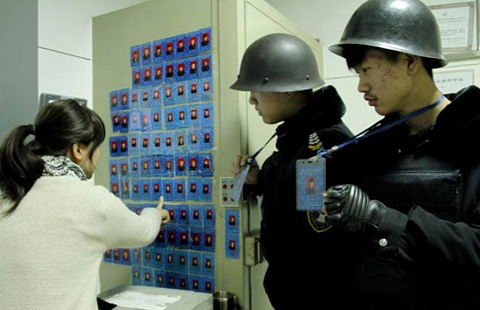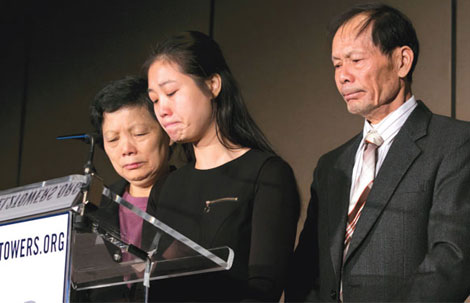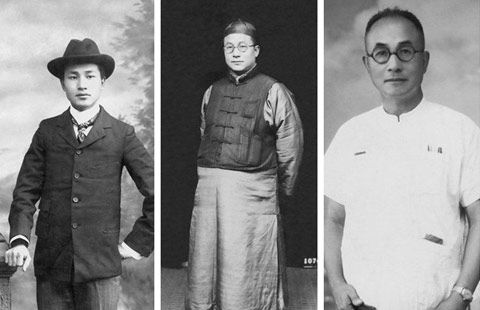Should adultery be declared a crime?
Updated: 2015-01-09 09:57
By Qiao Xinsheng(China Daily USA)
|
||||||||
A lot of corrupt officials are either facing investigation or have been convicted thanks to the ongoing anti-corruption campaign. Some of them have even been found "guilty" of committing "adultery". This has prompted some people to ask whether adultery is a crime, because it is not listed in the Criminal Law of China. But the constitution of the Communist Party of China has a clause that says that adultery is punishable; it calls for warning, revocation of the "guilty" person's Party post, probation and even expulsion from the Party. In other words, even though adultery is not a crime per se, it is a violation of the Party constitution.
The question is: Why is the Party regulation different from the law of the country? Is there a need to include adultery as a crime in the laws of the country? The resolution issued by the Fourth Plenum of 18th CPC Central Committee in October 2014 offers an explanation: the Party's constitution is an important part of China's legal system, and for Party members, the Party constitution is the same important as the national laws. This means that despite adultery not being mentioned as a crime in the country's laws, Party members indulging in adultery will be punished.
Wang Qishan, chief of the Central Commission for Discipline Inspection that is spearheading the anti-corruption drive, published an article in People's Daily interpreting the core spirit of the Fourth Plenum's resolution. The moment one takes the oath to join the CPC, a person gives up some of the basic rights endowed by the country's Constitution and subjects himself/herself to the discipline of the Party and stricter standards.
Party members must be bound by a more stringent code of conduct, otherwise the Party cannot consolidate its leadership. Acts that are not regarded as crimes by the country's Constitution and laws but go against the provisions of the Party's constitution are punishable for Party members.
The question this raises is: Should the Criminal Law be amended to include adultery as a crime? People rooting for constitutional amendment believe that adultery destroys marriages, disrupts social stability and profanes morality. But since adultery is also detrimental to spouses of other people, it should be seen as a family dispute. In other countries and regions, for instance, only the other spouse has the right to file a lawsuit against the husband or wife who has committed adultery. While adultery should be condemned, the law should not intervene in such matters because by doing so it will only make a family dispute more complicated.
Party members, particularly the leaders who occupy governmental posts, must exhibit higher moral standards to justify the power that rests in their hands. As a result, officials involved in adultery must be punished according to the Party's constitution.
Non-Party members who commit adultery cannot be punished according to the country's laws, which are inflexible. And personal relations are best handled by the parties involved. But crimes that threaten the social order and violate other people's rights - such as domestic violence, bigamy, maltreatment and abandonment - are clearly defined by the country's laws and deserve punishment.
Furthermore, the Party's discipline organs have viewed adultery and having a mistress differently. Adultery is a kind of infidelity. Having a mistress, on the other hand, involves the use of money to seek sensual pleasure. Many mistresses of corrupt government officials maintain a luxurious lifestyle thanks to the bribes their lovers get or the funds they embezzle. Therefore, while adultery calls for different types of punishment, a Party member who has a mistress should perforce be expelled from the Party.
But since the line between adultery and having a mistress is often vague, there is need to define such acts of infidelity in more detailed terms in Party regulations so that law enforcement officials can impose order more fairly.
The author is a professor of law at Zhongnan University of Economics and Law.
(China Daily USA 01/09/2015 page16)
Most Viewed
Editor's Picks

|

|

|

|

|

|
Today's Top News
Record-breaking $1b paid for site in Beijing
Xi renews vow of Latin America aid
French wary of new attack
Beijing sees record 'land rush'
Xi sends condolences to France over terror attack
Air China's new Boeing 747-8 lands
US top destination for capital from China
Alibaba.com launches payments protection
US Weekly

|

|















